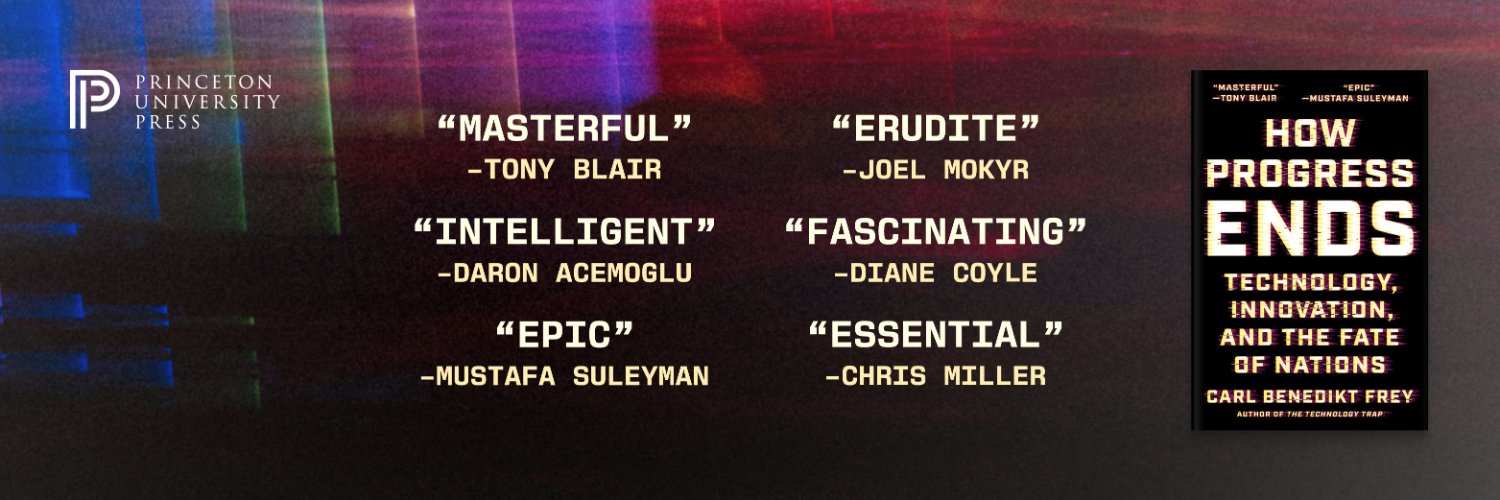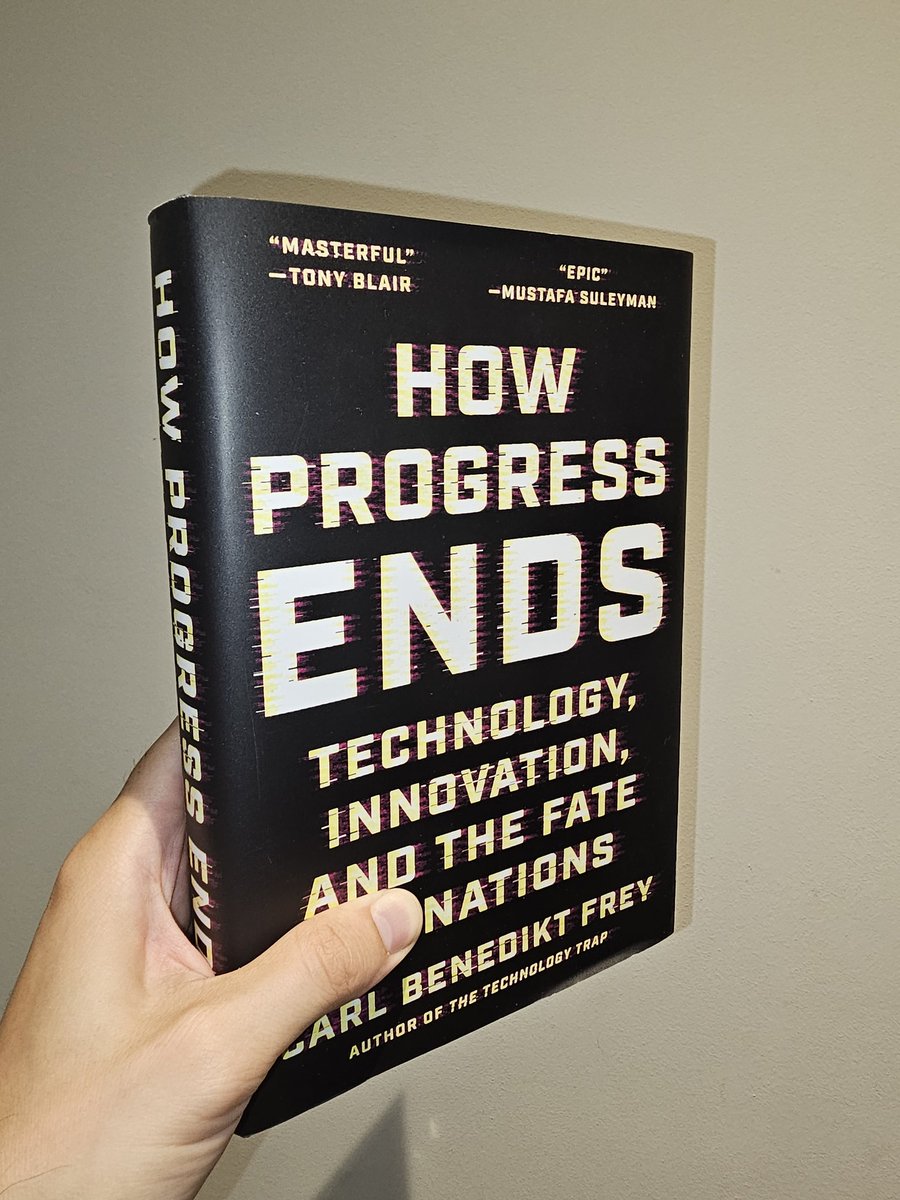
Carl Benedikt Frey
@carlbfrey
Prof @oiioxford Director, Future of Work @oxmartinschool at Oxford University. Author of How Progress Ends (2025) & The Technology Trap (@PrincetonUPress, 2019)
My 5 cents against a popular myth: Integration with China wasn’t the cause of America’s manufacturing decline—it was the response. The U.S. was already losing the manufacturing race to Japan. Chimerica neutralised Japan's production advantage. In @TheEconomist this week,…

Great early review in @PublishersWkly "His broad yet deep survey of technology ranges across many nations and centuries, and pokes insightfully into myriad subjects, from Carolingian feudalism to patent law. The result is an incisive and stimulating consideration of a critical…

Europe won't achieve tech sovereignty through "Buy Europe" provisions. The real keys are attracting US tech talent by matching Silicon Valley salaries and establishing a harmonized digital single market for genuine scale.

AI data centers using water is the least of our problems with regard to either water or artificial intelligence. slowboring.com/p/theres-plent…
From narrative histories of the Iranian Revolution to in-depth investigations into the future of mining and emerging technologies, here are FP’s favorite forthcoming titles. foreignpolicy.com/2025/07/18/sum…
🧵Now available! My paper with Ashruta Acharya and Alek Psrurek on the most generous engagement with the most influential "model" of degrowth. TLDR: It doesnt hold empirically. It predicts the opposite.
Chuffed to see #HowProgressEnds among @ForeignPolicy 's summer reads.

Here are 15 books coming out this summer that we expect to shape the conversation around international affairs for the rest of the year. foreignpolicy.com/2025/07/18/sum…
Arrived in the post today. Holding it in your hands for the first time is always very special. Thank you @PrincetonUPress!

Will be a must read!
Arrived in the post today. Holding it in your hands for the first time is always very special. Thank you @PrincetonUPress!
Few people are at the forefront of AI development as well as thinking about its economic and social implications. @mustafasuleyman is one of those rare individuals, so I am particularly grateful for this blazing endorsement. Makes writing the book feel worthwhile already. Thank…
Want to know what degrowth feels like? Come and visit us in the UK.

If World War II America teaches us anything, it is that it's possible to ramp up production at extraordinary speed when disaster strikes. The United States was never historically dominant in shipbuilding—nor did it need to be. The notion that industrial policy must permanently…

If Transformative AI is really around the corner, should we still worry about the budget deficit? Or maybe the costs of deficit spending are even greater? The ever-insightful @SBenzell does the analysis.
Could AI Save Us From Making Hard Choices About the Budget? An analysis of some recent arguments from Peter Thiel and Tyler Cowen
Here are my proposals for @uaustinorg. I can assure you no established university will do anything remotely like this. 4/5
Congratulations to @dkedrosky & @nunopgpalma on their "Brazilian gold influx impoverished 18th c Portugal through Dutch Disease & delayed industrialisation via a political-institutional resource curse" paper. But double congratulations to Davis for his first academic publication!
Whether you're on the political left or right, we've all become stakeholder capitalists now. (Whether stakeholders' goals are nobler than shareholders', you can decide for yourself). Interesting piece on geoeconomics by @gilliantett.

It doesn’t seem as if Moscow 🇷🇺 was overly impressed by Trump 🇺🇸 yesterday. And the threat of 🇺🇸 consumers perhaps having to pay more for the chocolate and fertilizers they still import from 🇷🇺 50 days from now will hardly move the Kremlin.
The Economics of Bicycles for the Mind. With @joshgans and @professor_ajay. A bicycle amplifies human locomotion. Computers and AI amplify human intelligence. We model such cognitive tools, showing when they affect productivity, inequality, & teams. nber.org/papers/w34034
While recent graduate students may fall victim to AI agents, the leadership skills of seniors look likely to remain as relevant, new research suggests. "Managers who are more successful leading teams of AI agents are also more successful with human teams."
